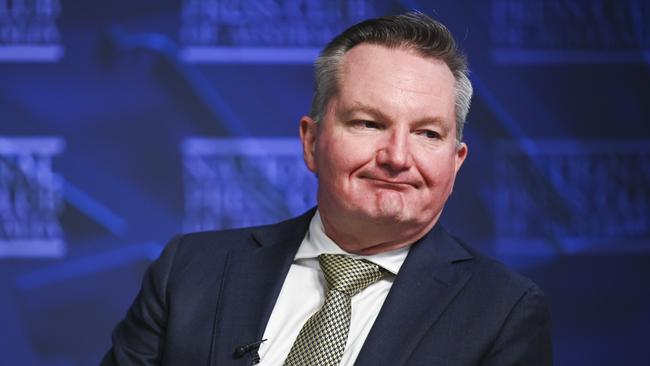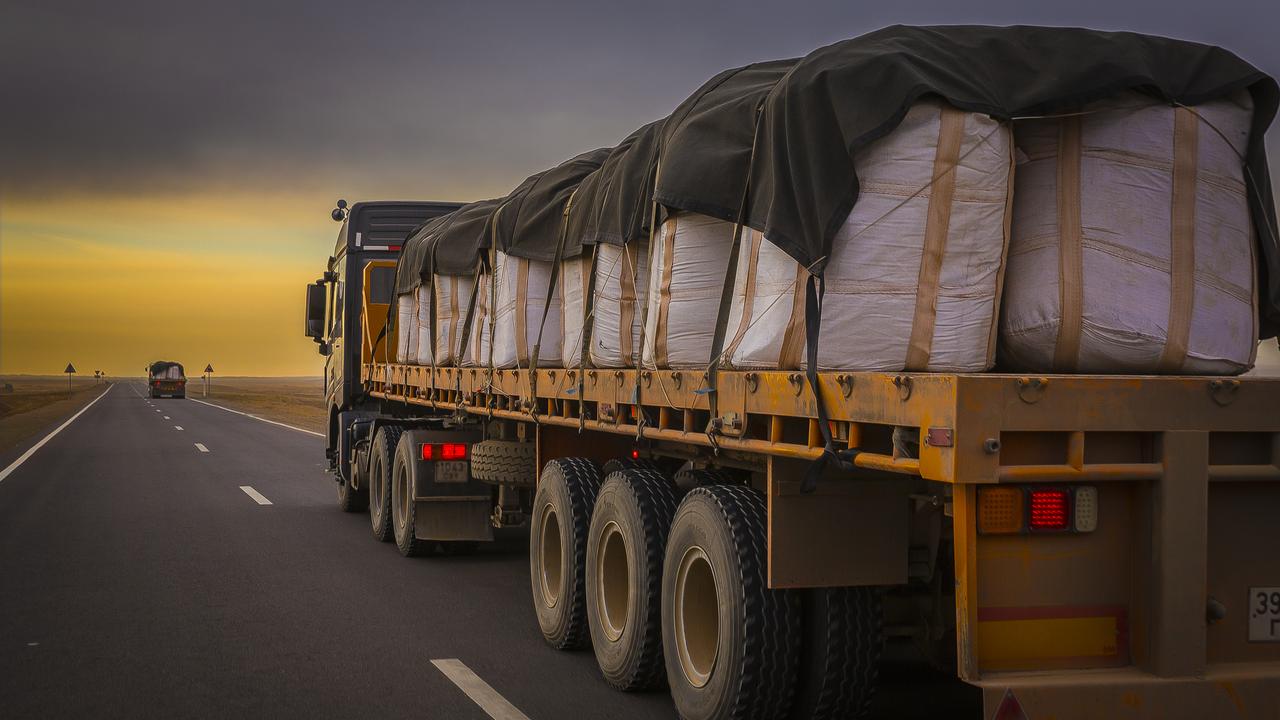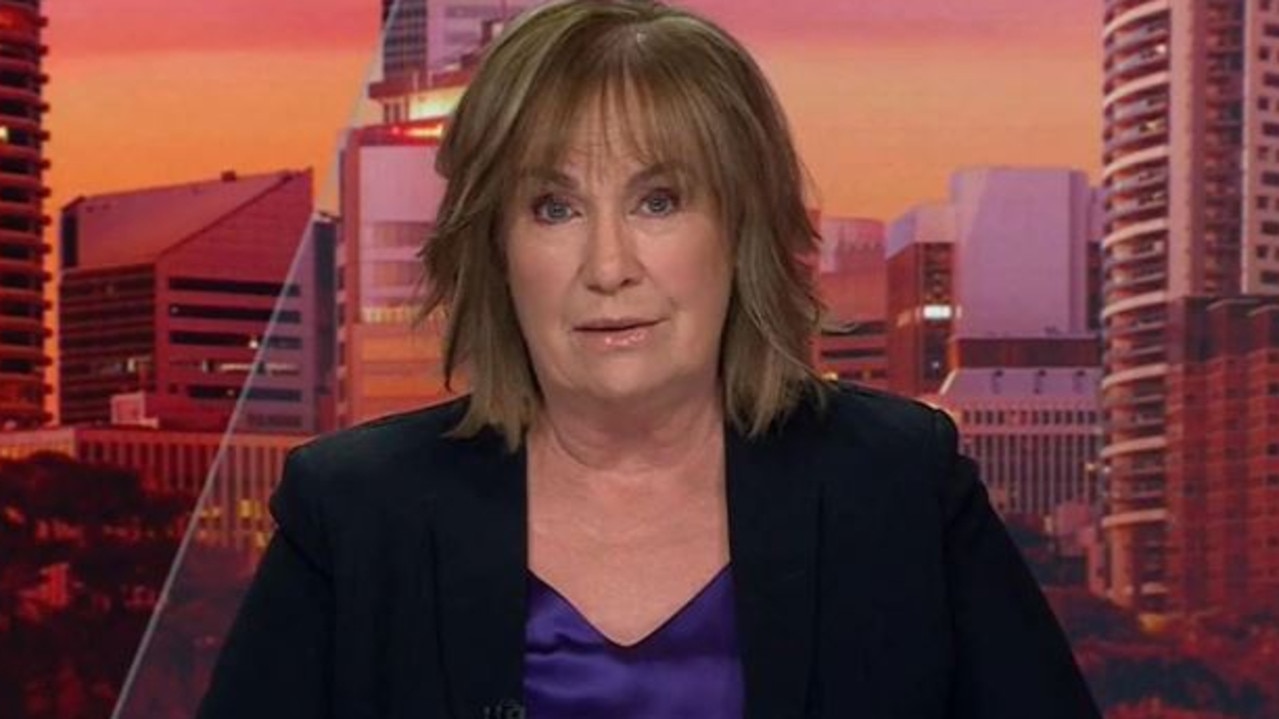Flotation Energy challenges rejection for a feasibility licence into offshore power generation
Flotation Energy has launched legal action against a decision by federal Energy Minister Chris Bowen to turn it down for a feasibility licence to develop wind-powered generators off Victoria.

An offshore wind developer has launched legal action against federal Energy Minister Chris Bowen after its application for a development licence in Victoria was unexpectedly rejected.
The Federal Court is due to rule on the dispute this month.
The Australian revealed this year that Flotation Energy, widely seen as Australia’s second-most advanced offshore wind project given it held government grants and major project status, had been informed it would not get a so-called feasibility licence.
In a move that underscores the depth of anger and frustration, Flotation then launched legal action against Mr Bowen, arguing the minister had the capacity to alter its planned boundary and give it a development permit.
The Australian understands Flotation’s proposal for a licence had a boundary overlap with Iberdrola, one of the world’s largest renewable energy developers, though the crossover was marginal. Under Australian rules, if both Flotation and Iberdrola had been deemed equally meritorious, the two parties would have had to enter boundary disputes, though the federal government concluded Iberdrola had greater merit.
Iberdrola is one of the world’s largest developers of offshore wind and has capacity to access vast sums of development capital – two of the major criteria for how the government selected winners – though Flotation is also a major offshore wind player and is backed by Japanese giant Tokyo Electric Power Company (TEPCO).
TEPCO representatives were understood to have travelled to Canberra in the hope of meeting Mr Bowen and persuading him to change his mind.
In an escalation of the matter, lawyers for Flotation and Mr Bowen in October will seek a Federal Court ruling on the application of Australian law. Flotation will argue Mr Bowen could have made a tiny alteration, a claim the government insists it did not have the power to make.
A victory for Flotation will not automatically give it a development licence, and would have to rely on the grace of Mr Bowen.
Industry sources not connected to Flotation questioned the wisdom of legal action.
“A victory for Flotation doesn’t achieve what they want. I find it difficult to see how the government is going to give them a licence or anything else that they might apply for now,” a senior industry figure told The Australian.
Flotation confirmed it had implemented legal action but declined to comment on specific points. “Flotation Energy is seeking to clarify aspects of the Offshore Electricity Infrastructure Act licensing regime in relation to the award of feasibility licences,” the company said in a statement.
“Flotation Energy is well known for pioneering offshore wind and energy transition projects. Flotation Energy has a 13GW pipeline of fixed and floating offshore wind projects in the UK, Ireland, Japan, Taiwan and Australia.”
A spokeswoman for Mr Bowen said she could not comment as the matter was before the courts.
Sources within Australia’s offshore wind industry said they hoped Flotation secured the feasibility licence, insisting it would accelerate development of the sector on which Victoria has earmarked most of energy transition hopes on.
“Not including Flotation creates a gap of between two and four years between Star of the South and the rest. By not having Flotation it puts the industry back, dents the capacity of supply chains developing and, really, South of the South is going to be the only project bidding into the contract for difference auction held by the Victorian government,” said one source not connected to Flotation.
Star of the South, backed by Copenhagen Infrastructure Partners and Cbus, is considered Australia’s most advanced offshore wind project. Macquarie-owned Corio is now believed to be the second but remains some years behind Star of the South as it has yet to undertake substantial work required, such as undersea surveys.
But Victoria cannot afford substantial delays. The Victorian government in 2022 set a target of generating the equivalent of about 20 per cent of its energy needs from offshore wind within a decade. The target then doubles to 4GW by 2035 and 9GW by 2040. In all, the state sees potential for 13GW of offshore wind capacity by 2050, five times the current renewable generation in Victoria.
Victoria’s coastline is ideal for offshore wind. Winds are very strong and consistent by international standards, while a large area of shallow ocean less than 50m-60m deep is suitable for wind turbine platforms to be fixed to the seabed, a much more mature and cheaper technology than the floating turbines that have to be used in deeper waters.







To join the conversation, please log in. Don't have an account? Register
Join the conversation, you are commenting as Logout